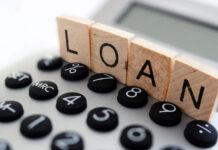
The retail investor should probably not delve into the Forex market, but the trades generally affect all of us. From the amount we pay for our exports to the traveling cost abroad, all of it gets impacted by the real-time activity of the spot market.
Is forex legit or a scam? Although Forex trading is the largest market worldwide, it attracts a few non-scrupulous lots. Since the market does not get monitored like stocks by any exchange, many players seek unnecessary gain. The resultant action is a higher number of victims due to Forex scams.
The rise of companies who help support such people to get back their money is creating all the difference. But what are the factors that you should keep in mind while concerning forex trade investment?
Types of Forex Trading
Most Forex market trade takes place not to exchange currencies but to speculate the future price movement similar to stock trading. If you are familiar with the stock markets, you will relate to the Forex market operations.
Forex traders buy those currencies which they think will appreciate in the days ahead vis-a-vis the other currencies. Depending on the goal, there are three different types of ways to trade Forex:
- The spot market – This primary Forex market helps determine the exchange rates in real-time by swapping the currency pairs based on demand and supply.
- The forward market – It allows the execution of a trade on a future date through a private contract between two traders on a pre-locked exchange rate and amount.
- The futures market – The execution of a future trade deal with a quoted currency for a predetermined amount of that currency at a specific date and rate in the future. Unlike the forward market, this does not happen through a private contract but on the exchange.
The futures and forward markets are in use by Forex traders who want to hedge or speculate against any future price change of a currency. A crucial aspect to note is that the deals in this market are based on the activities in the spot market, which is also the largest of the pool.
Terms Relating to Forex Market
Every market that operates worldwide has its own particular set of languages, which the traders and investors often use. If you are planning to invest in the Forex market you should be aware of such terms too.
- Margin – Traders have to put forward an amount as deposit upfront, termed as margin before they can engage in any trade.
- Currency pair – Every Forex trade that you see involves a currency pair. The major currency pairs have the US dollar as the common currency. The less popular ones include the currencies of the developing nations.
- Leverage – Leverage is a term that is in use as an alternative for borrowings. It facilitates the traders to take part in the Forex market without the money they would need otherwise. As Taurex comments, “It is important to use leverage responsibly and understand the risks involved.” This insight underscores the need for prudence in utilizing leverage, as the consequences of misuse can be significant. While leverage can increase potential returns, it can also amplify losses, making it a tool that should be used with caution, especially by retail investors.
- Pip – The term ‘pip’ is short for percentage in points, and it refers to the smallest possible change of prices in a particular currency pair. It is vital as the prices in the forex market include up to four decimal places. You can consider a pip equal to 0.0001.
- Lot – The presence of a standardized unit of currency or lot is common in forex trades. The popular lot sizes include 100,000 units of a particular currency. However, you should also know there are 1,000 or micro and 10,000 or mini lots available for trading too.
- Bid-ask spread – Similar to the stock market, the exchange rates of a particular currency get determined by the minimum amount that the sellers are willing to shell out or ask and the maximum amount that the buyers are willing to pay or bid. The range between the two amounts or the difference is what will decide the bid-ask spread.
There are various other aspects too, which you should keep in mind while choosing to trade in a forex market. The demand and supply of the buyers and sellers are what drives the currency prices. However, you should never rule out the macro forces that outplay the markets.
You should also know that the demand for a particular currency can also be influenced by the interest rates, political environment, policy of the central bank, economic growth of the country, legislation of the country in question, etc.


































































